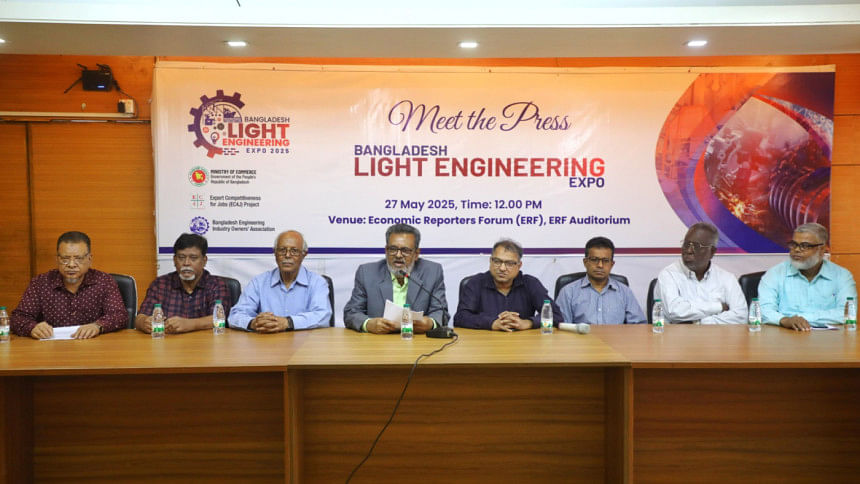Light engineering expo begins in Dhaka on May 29

The Bangladesh Light Engineering Expo 2025 will begin in Dhaka on 29 May, aiming to promote networking, showcase products, and share market insights among entrepreneurs, buyers, and policymakers in the sector.
The Bangladesh Engineering Industry Owners Association (BEIOA) and the Export Competitiveness for Jobs (EC4J) Project under the commerce ministry will jointly organise the two-day event at the Shaheed Abu Sayeed International Convention Centre.
At a press conference held at the Economic Reporters Forum in Dhaka, BEIOA President Md Abdur Razzaque said the expo would serve as a platform for local industrialists to showcase their capabilities and explore global opportunities.
He said the light engineering sector plays a crucial role in supporting industries through backward linkages, contributing to agriculture, power, textiles, construction, and household equipment.
A total of 24 companies from various sub-sectors—such as metal casting, spare parts, agricultural machinery, auto parts, dies and moulds, and electrical appliances—will participate in the fair, setting up 44 stalls to display technologies, machinery, and innovative products.
Razzaque said the global market for light engineering products exceeds $7 trillion, yet Bangladesh's exports remain at only $795 million.
With investment, technological upgrades, and infrastructure development, exports could rise to $100 billion, he added.
Currently, the country has over 50,000 small and large light engineering companies, directly employing more than three lakh people and indirectly supporting over three million.
The sector contributes about 3 percent to Bangladesh's gross domestic product and meets around 50 percent of the demand for machine parts in local industries.
To develop the sector, Razzaque urged the government to establish compliant industrial zones, encourage product diversification and technology transfer, reduce customs duties on raw material imports, ensure patent and design protection, enhance skills among women and youth, and provide cash incentives for exports.
Abdur Rahman, deputy project director of the EC4J Project, said the fair will help increase market linkages and boost the export capacity of entrepreneurs.

 For all latest news, follow The Daily Star's Google News channel.
For all latest news, follow The Daily Star's Google News channel. 



Comments